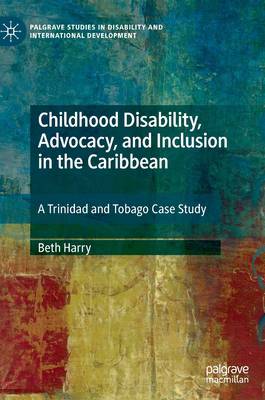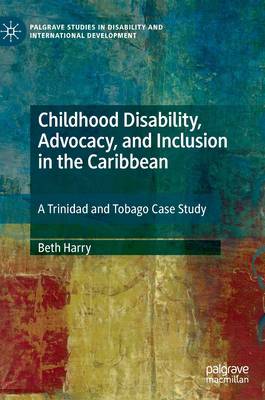
- Afhalen na 1 uur in een winkel met voorraad
- Gratis thuislevering in België vanaf € 30
- Ruim aanbod met 7 miljoen producten
- Afhalen na 1 uur in een winkel met voorraad
- Gratis thuislevering in België vanaf € 30
- Ruim aanbod met 7 miljoen producten
Zoeken
Childhood Disability, Advocacy, and Inclusion in the Caribbean
A Trinidad and Tobago Case Study
Beth Harry
€ 73,95
+ 147 punten
Uitvoering
Omschrijving
This book presents an ethnographic case study of the personal motivations, advocacy, and activation of social capital needed to create and sustain the Immortelle Children's Centre, a private school that has served children with disabilities in Trinidad/Tobago for four decades. Based on narratives by parents from the 1980's, current parents, teachers, community advocates, and the author, who was the founder of Immortelle in 1978, the study views the school within the context of a nation standing in a liminal space between developed and developing societies. It argues that the attainment of equity for children with disabilities will require an agenda that includes a legal mandate for education of all children, increased public funding for education, health and therapeutic services, and an on-going public awareness campaign. Relating this study to the global debate on inclusion, the author shows how the implementation of this agenda would have to be adapted to the social, cultural, and economic realities of the society.
Specificaties
Betrokkenen
- Auteur(s):
- Uitgeverij:
Inhoud
- Aantal bladzijden:
- 283
- Taal:
- Engels
- Reeks:
Eigenschappen
- Productcode (EAN):
- 9783030238575
- Verschijningsdatum:
- 18/10/2019
- Uitvoering:
- Hardcover
- Formaat:
- Genaaid
- Afmetingen:
- 148 mm x 210 mm
- Gewicht:
- 653 g

Alleen bij Standaard Boekhandel
+ 147 punten op je klantenkaart van Standaard Boekhandel
Beoordelingen
We publiceren alleen reviews die voldoen aan de voorwaarden voor reviews. Bekijk onze voorwaarden voor reviews.











